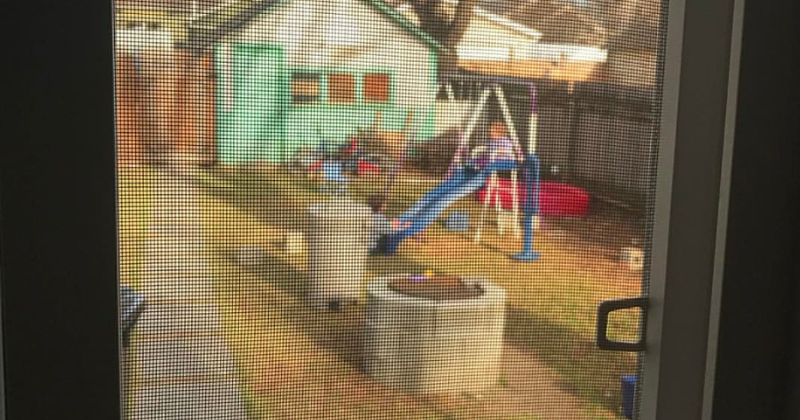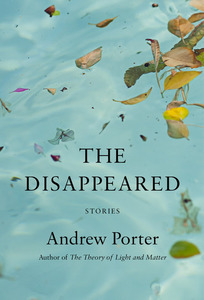
Once You Start to Look, You See the Disappeared Are Everywhere
Andrew Porter on Writing About Growing Older
In the years just after my children were born, I started to notice that things in my life were beginning to disappear. In some ways, it’s hard to say exactly what I mean by this because not all of the things that were disappearing were things that I could easily pinpoint or describe. In certain ways, it was just a sensation more than anything else, a feeling that specific elements in my life that had always been there were no longer present. That certain things both physical and abstract were dissolving, disintegrating, vanishing.
I was in my early to mid-forties at the time. I had a tenured position as a professor. I was married with two kids, a house, a dog. I had all of the evidence of stability around me and yet I couldn’t shake the sensation that none of it was actually stable, that much of what seemed permanent was just a hastily rendered illusion, a facade.
To put it another way, much of my life up until that point had seemed like the gradual accumulation of things, and, in fact, for many people I think that’s what their twenties and thirties are about: the accumulation of degrees, of jobs, of money, of assets, of property, of partners, of children, of cars, pets, furniture, etcetera. Every year you are trying to add more, as if the accumulation of these things were a kind of fortifying of one’s life, a protection against anything out there that might come in to threaten it or take it away.
And I remember that sensation myself, the feeling of getting my first-tenure track job, and later tenure, of publishing my first book, buying a house, getting married. With each one of these accomplishments or additions to my life, I felt more insulated or fortified; and though I hesitate to use this word because it feels so naïve, with each one of these additions I also felt increasingly safe.
And, even now, when I think of the pinnacle of that feeling of safety, I think of my wedding day in 2010. I had just published my first book, just earned tenure, and recently bought a house. I was in some of the best physical shape of my life, and when I looked around the reception that day I remember seeing all of the people in my life I was closest to, and that my wife was closest to, all of our friends from childhood and college and graduate school, the friendships we’d built since we’d lived in San Antonio, the family and extended family we’d known forever, and in certain ways these people, too, these relationships, were a kind of accumulation, or stockpile; at the very least they seemed the evidence of a live well lived.
In the years that had passed since that day, though, a lot of that mental photograph—that is to say, the image that I had of looking around the reception that day—had begun to chip away and dissolve. For one thing, several of the couples we were closest to at the time had moved away within a span of about two or three years, almost as if they were all aware of some type of plague in town that we were not; others had divorced, which is itself a kind of disappearance, and still others we were close to had died. We had family members, too—both of our fathers, for example—who were now suddenly battling significant health issues; other relatives facing diagnoses that had previously seemed unfathomable. But beyond just the people in our lives, there were many other things around us that seemed to be gradually disappearing too.
We’re always trying to give the things that we’ve lost, or that we fear we might lose, a new physical shape.
Since having children, for instance, there was suddenly less space in our house, less money in our bank account, less energy in our bodies. There was less freedom to move around the world, to stay out late, to hang out with friends who didn’t have children, less time to nurture the relationships from our younger years, and you could feel those, too, slipping away gradually, little by little, year by year. If one’s twenties and thirties were about the accumulation of things, then it seemed that one’s forties were in some ways about the opposite of that, about the vanishing of many of those very same things.
Among the most significant things that had disappeared from my life, though, was not something I would speak about with anyone else or that I even fully acknowledged to myself. It’s only now, in retrospect, that I can recognize that I’d lost all sense of myself as a writer, as a person who created things. I had published my last book in 2012, and in the three or four years that had passed since then I had written very little, almost nothing.
Part of this was due to just the chaos of having two young children at home. The lack of sleep, the constant worry, the play dates and birthday parties, the inevitable accidents that needed to be attended to, and so on. There was the physical exhaustion of it, and of course the lack of time, but there was also a psychological element to it, too, that was harder to pinpoint.
All I knew was that when I looked at the stories I’d been working on just before my children were born they seemed like stories that had been written by another person, not me. They had nothing at all to do with the conflicts of my current reality, nothing at all to do with life as I now knew it. At the same time, I didn’t want to write about life as I now knew it, as I figured no one would really want to read about that, that no one would really care.
So I went on like this for a while, for several years, sort of drifting through my own life without any real sense of what I was supposed to be doing, or who I now was, other than a guy who spent an inordinate amount of time at Chuck E. Cheese, who had brush burns on his neck from the Baby Bjorn. Then finally one day, as I was sitting in a coffee shop near my house, I found myself writing a story about a guy who goes to a party where he sees a bunch of friends from an earlier time in his life, a time in his life before kids. These friends, who are all still childless, seem exactly the same, look exactly the same, as if frozen in time, and it forces him to confront his own transformation in a way he’s never had to before.
It was a story, at its core, about a disappearance, a disappearance of one’s younger self, and all I knew was that after I’d finished it—and I wrote it pretty quickly—it opened up the floodgates and suddenly I felt that I could see an entire book of stories like this, stories about disappearances of various sorts, both literal and figurative, stories about the disappearances in all of our lives. It seemed for the first time like a way to write about this feeling I hadn’t been able to pinpoint or articulate before, that I hadn’t been able to name.
And in some ways the book itself, which is now finished and now out in the world, was my way of pushing back against all of the things that had been disappearing from my life. I was making a book out of those things, and that book would now be a new addition, something new I was adding to my life, rather than something I was watching slip away. The human heart resists it, after all, the notion of things disappearing. That’s why we tell stories, memorialize the dead with written words, why we keep writing books. We’re always pushing back against it. We’re always trying to give the things that we’ve lost, or that we fear we might lose, a new physical shape, a new existence, a new life.
__________________________________

Andrew Porter is the author of The Disappeared, available from Knopf, an imprint of Penguin Random House.
Andrew Porter
Andrew Porter is the author of the story collections The Theory of Light and Matter and The Disappeared, and the novel In Between Days. A graduate of the Iowa Writers’ Workshop, he has received a Pushcart Prize, a James Michener/Copernicus Fellowship, and the Flannery O’Connor Award for Short Fiction. His work has appeared in One Story, The Threepenny Review, and Ploughshares, and on public radio’s Selected Shorts. Currently, he teaches fiction writing and directs the creative writing program at Trinity University in San Antonio, Texas.



















